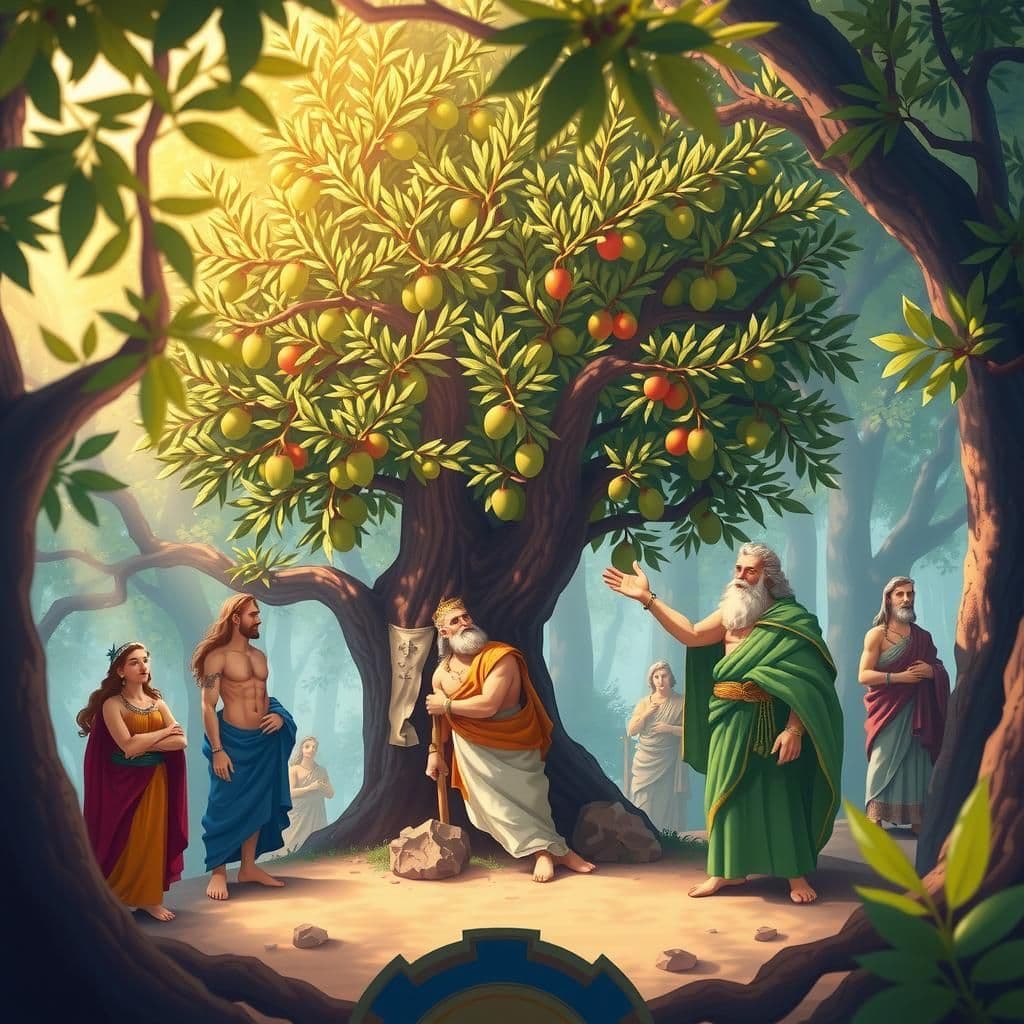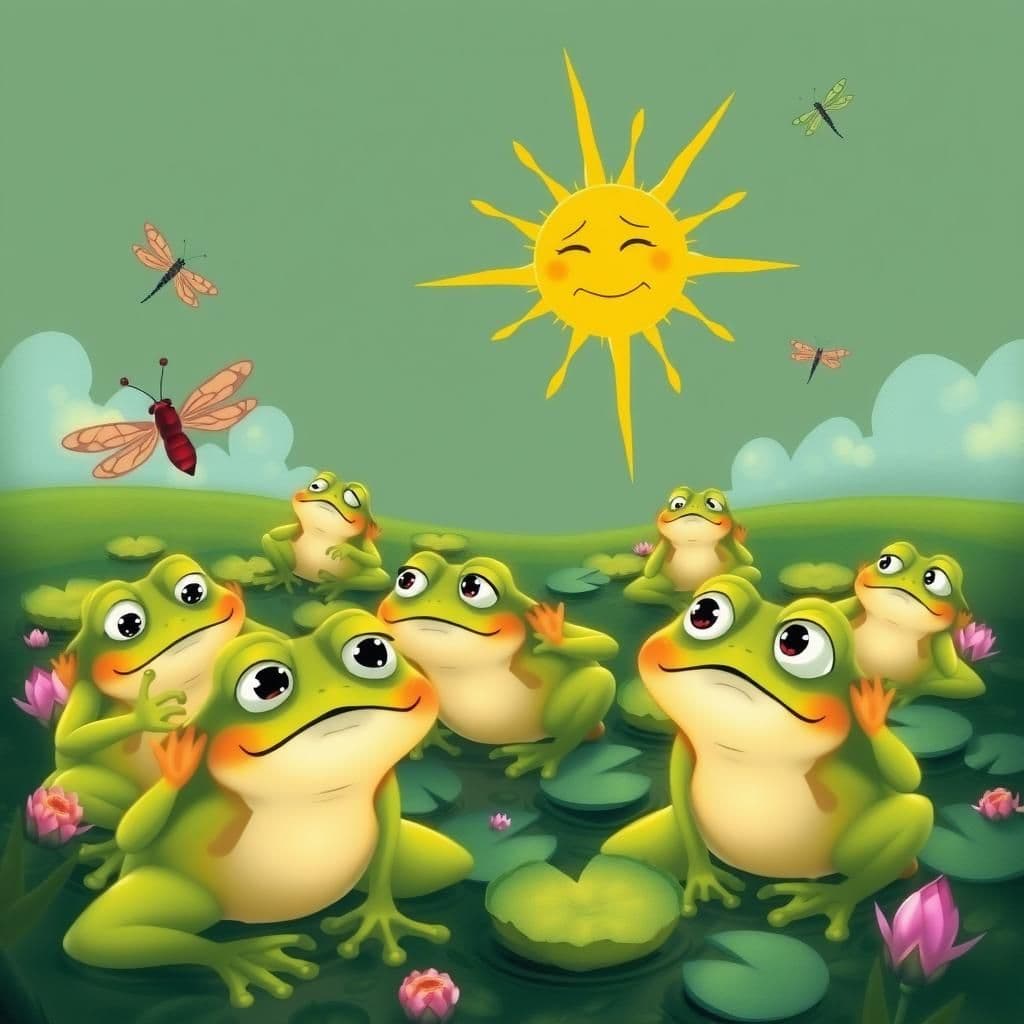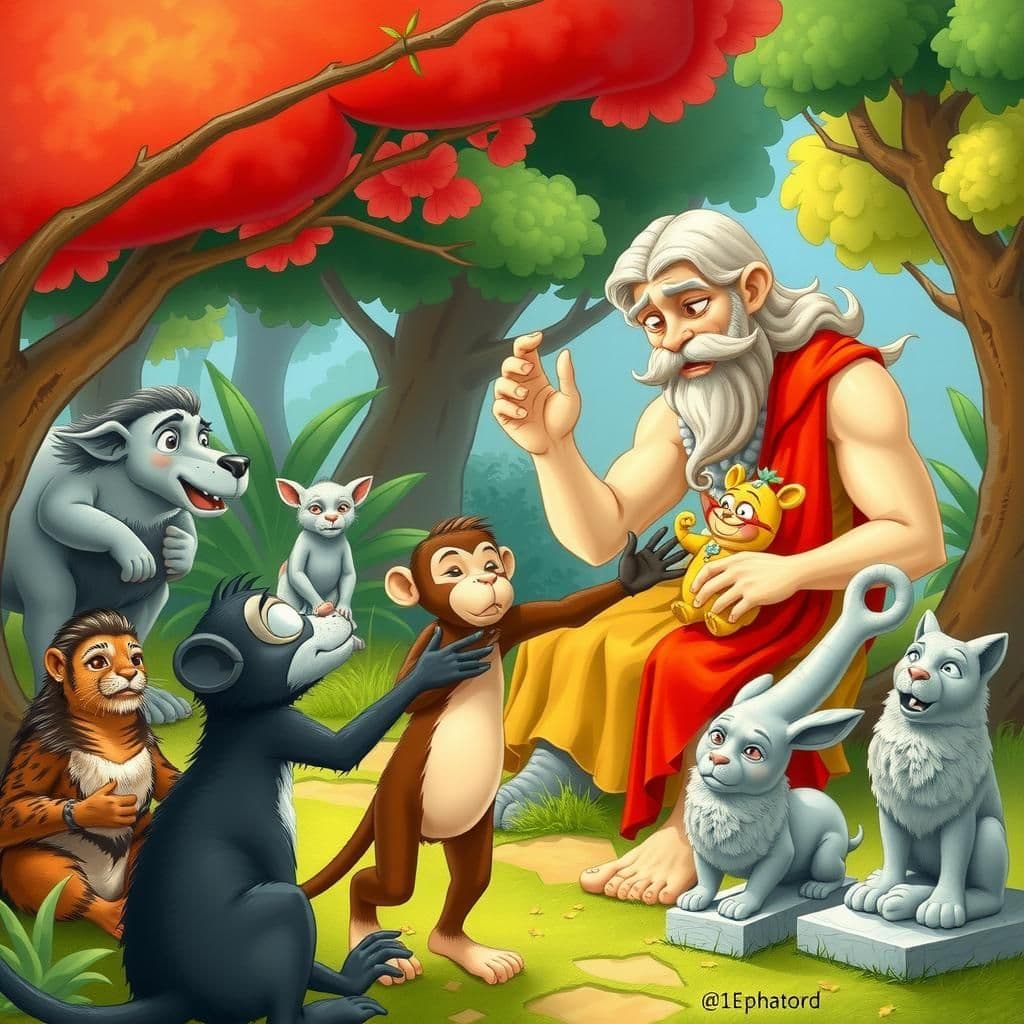The Trees Under the Protection of the Gods

Story Summary
In "The Trees Under the Protection of the Gods," various deities select trees for their protection, favoring those that do not bear fruit to avoid the appearance of greed. Minerva advocates for the fruitful olive, leading Jupiter to impart a thought-provoking moral: true glory lies in usefulness, not superficial honor. This short and sweet moral story highlights the importance of impact over appearance, making it a compelling lesson on value and purpose.
Click to reveal the moral of the story
The true value of actions lies in their usefulness rather than in their outward glory or appearance.
Historical Context
This story reflects themes from ancient Roman mythology, where gods were often associated with specific natural elements and had symbolic meanings tied to their attributes. The dialogue among the gods echoes philosophical ideas prevalent in classical thought, emphasizing the value of utility and wisdom, as seen in works by authors like Ovid. The olive, revered for its fruit, represents peace and prosperity, illustrating the cultural significance of agriculture and practical benefits in ancient societies.
Our Editors Opinion
This ancient story highlights the importance of prioritizing utility and substance over superficial glory in modern life. For instance, in a workplace scenario, an employee may choose to lead a high-profile project that garners attention, while a colleague quietly ensures the success of a less glamorous but essential task, demonstrating that true value often lies in contributions that may not attract immediate recognition but are vital for overall success.
You May Also Like

The Frogs Complaint Against the Sun
In "The Frogs' Complaint Against the Sun," a classic tale from short story collections with moral lessons, the Frogs voice their fears to Jupiter about the Sun's intention to marry, worried that his future offspring could further dry out their marshy homes. This bedtime moral story highlights the Frogs' plight, emphasizing the importance of considering the consequences of one's actions, making it a valuable addition to childhood stories with moral insights. As they lament their dire situation, the narrative encourages personal growth by reflecting on the potential impact of new beginnings.

Jupiter Neptune Minerva and Momus
In an ancient legend, Jupiter, Neptune, and Minerva each create significant entities—man, bull, and house—and dispute over whose creation is the most perfect. They appoint Momus as a judge, but his incessant faultfinding leads to humorous critiques of each creation, prompting Jupiter's indignation and Momus's expulsion from Olympus. This funny story offers an uplifting moral about the pitfalls of constant criticism, making it a delightful addition to bedtime moral stories and simple moral tales.

Jupiter and the Baby Show
In "Jupiter and the Baby Show," a clever Monkey enters her unattractive cub in a competition hosted by Jupiter, who initially mocks the cub's appearance. However, the Monkey turns the tables by highlighting the flaws in Jupiter's own offspring depicted in antique sculptures, prompting Jupiter to award her the first prize to avoid embarrassment. This impactful moral story emphasizes the value of humility and the importance of recognizing one's own imperfections, making it a noteworthy addition to short story collections with moral lessons.
Other names for this story
Divine Guardians of the Forest, Sacred Trees of the Gods, Mythical Trees of Protection, Legends of the Sacred Grove, The Gods' Chosen Trees, Ancient Trees and Divine Secrets, Nature's Divine Protectors, Celestial Trees of Wisdom
Did You Know?
This story highlights the theme of the value of utility over superficial glory, emphasizing that true worth lies in actions that provide tangible benefits, as illustrated by Minerva's preference for the olive tree, which produces fruit and sustenance.
Subscribe to Daily Stories
Get a new moral story in your inbox every day.
Explore More Stories
Story Details
- Age Group
- adultkidschildrenstory for class 2story for class 3story for class 4story for class 5story for class 6story for class 7story for class 8
- Theme
- wisdomutilityhonor
- Characters
- JupiterVenusApolloCybeleHerculesMinervaoakmyrtlelaurelpinepoplarolive
- Setting
- forestmountaintopcelestial realmgrovedivine council chamber